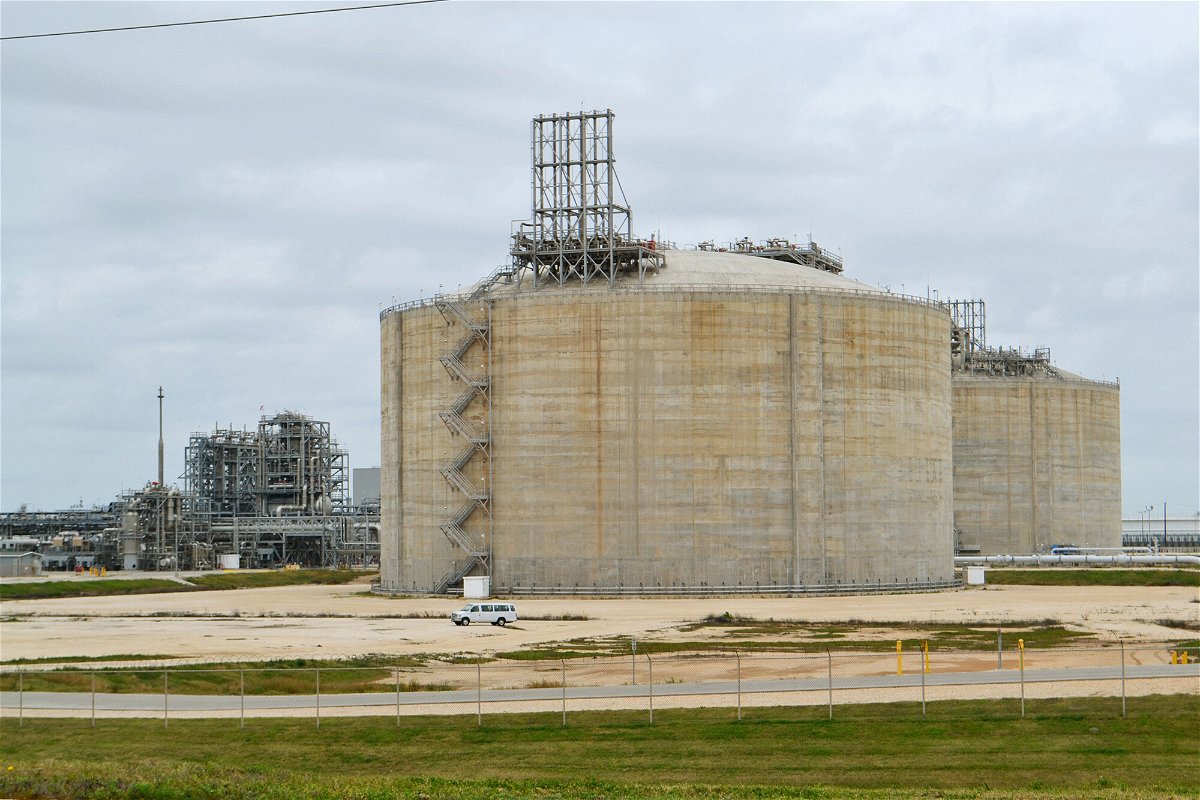Freeport LNG explosion raises risk of European winter energy crisis

A fire at one of the world's biggest suppliers of liquefied natural gas has thrown Europe's fragile energy security into doubt and spooked global gas markets.
By Anna Cooban, CNN Business
A fire at one of the world’s biggest suppliers of liquefied natural gas has thrown Europe’s fragile energy security into doubt and spooked global gas markets.
Freeport LNG, a liquefied natural gas (LNG) producer in Texas, will shut its doors for at least three weeks, the company confirmed to CNN Business.
“The cause of the fire at Freeport LNG’s liquefaction facility on Quintana Island remains under investigation,” Heather Browne, a company spokesperson, said.
Europe has snapped up global stocks of LNG in recent months as it attempts to sharply pivot away from Russia’s natural gas exports. The region, including the United Kingdom, imported 28.2 million tons between February and April, according to Independent Commodity Intelligence Services — up 29% from the same period last year.
The United States is the world’s largest supplier of LNG, accounting for just over a fifth of global exports, according to data from analytics firm Vortexa. Output from the Freeport LNG facility makes up 18% of these exports.
With no direct pipeline between the United States and Europe, American energy companies cool their natural gas for export to -260 degrees Fahrenheit and place the liquefied gas on tanker ships for overseas transport. That process, though more complex than land transport, has become crucial to Europe meeting its energy demands during Russia’s invasion of Ukraine.
The Freeport blast could deal a blow to that stopgap solution, particularly if the facility fails to come back online soon.
“Despite the initial estimate of three weeks of downtime by the operator, the production impact is likely to stretch into July,” Felix Booth, head of LNG at Vortexa, told CNN Business.
The shutdown will cut the plant’s output by 8% this month and next, Vortexa estimates.
“This is going to take supply out of the market when it’s badly needed. We were already moving into a very precarious set of market dynamics,” Alex Munton, a director for global gas and LNG at Rapidan Energy, told CNN Business.
Europe will be the most directly affected region. According to data from the ICIS as much as 80% of Freeport LNG’s cargoes went to the continent, which includes Turkey, in March.
“This is going to tighten prompt supply, particularly in the Atlantic, as a majority of the cargoes have been destined for Europe,” Ruth Liao, editor for LNG Americas at ICIS, told CNN Business.
News of the shutdown sent future prices for LNG in East Asia up by 4% on Thursday to hit nearly $25 per metric million British thermal units (mmbtu), ICIS data shows. Europe natural gas futures also jumped nearly 9% on Thursday.
On the other hand, natural gas futures prices in the United States dropped 6% on Thursday due to an expected fall in demand now the plant is offline, according to ICIS.
LNG shortage
But Europe’s appetite for LNG is pushing the world to the brink of a winter energy shortage. A recent analysis by Rystad Energy forecasts that global demand will outstrip supply by 26 million tons by the end of the year — equating to about 25 days’ worth of supply — if the bloc continues to “sharply reduce” its reliance on Moscow’s natural gas. It plans to slash consumption of Russian gas supplies by two-thirds by the end of the year.
LNG prices are expected to soar, with economies in Asia, such as India, Pakistan and Bangladesh, the most likely to be priced out of the market. These countries could ramp up their use of coal and oil as a result, Rystad Energy predicts.
Disruption to Europe’s biggest source of LNG — the United States made up 45% of its imports in May and April, Vortexa data shows — is the last thing the continent needs right now.
Henning Gloystein, director of energy, climate and resources at Eurasia Group, told CNN Business that above-average hurricane activity in the Gulf of Mexico later this year could exacerbate the oncoming shortage.
“If the outage at Freeport is extended and this weather prediction of hurricanes turns into reality precisely in the months during which Europe tries to fill its inventories through LNG imports ahead of next winter and in preparation of potential Russian pipeline disruptions, things could get problematic in Europe,” he said.
— Matthew Egan contributed to this report.
The-CNN-Wire
™ & © 2022 Cable News Network, Inc., a WarnerMedia Company. All rights reserved.

